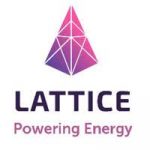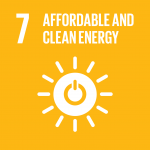Energy Management Systems (EnMS)
What's ISO 50001:2018 - Energy management systems?
World energy consumption continues to rise – it has more than doubled in the last 40 years and is projected to increase a further 30 % by 2040 (International Energy Agency (IEA), World Energy Outlook 2017).
What’s more, energy is the major contributor to climate change, making up nearly 60 % of the world’s greenhouse gas emissions. Managing energy in a better way helps the planet on which we live from the point of view of environmental sustainability as well as it saves money for organizations and society as a whole. A study commissioned by the Climate Works Foundation, a non-governmental organization that leverages the power of collective philanthropy in the fight against climate change, revealed that public health-related savings of more than USD 3.2 trillion would have been possible, had there been more efforts in regard to energy efficiency and reduction in carbon growth in the industrial and buildings sectors alone, we could make over USD 3.2 trillion in public health-related savings.
ISO 50001:2018, Energy management systems is a strategic tool developed to help organizations develop and implement management systems aimed to use their energy more efficiently and effectively.
What's ISO 50001:2018, energy management systems?
An energy management system helps organizations in managing their energy use in a better way. It involves developing and implementing an energy policy, setting achievable objectives & targets for energy use, and develop action plans to achieve them and measure progress. This can include the adoption of updated technologies geared towards energy-efficiency, reduction in energy waste & improvement in the current processes to cut energy costs.
ISO 50001 is an internationally agreed-upon set of best practices to help organizations establish & implement systems that can drive efficiency in the use of energy. Like other ISO management systems standards, it follows the “PDCA Model”.
ISO 50001 is a set of requirements that enables organizations to
- Develop energy policy
- Set objectives and targets to meet that policy
- Measure the results obtained
- Analyze and evaluate the data to make a factual decision concerning better use of energy
- Review the effectiveness of the policy
- Continually improve energy management
Who can use ISO 50001?
Like all ISO management system standards, ISO 50001 has been designed for implementation by any organization in the public or private sector, whatever its size, activity or geographical location.
ISO 50001 does not fix targets for improving energy performance, which is left up to the user organization or regulatory authorities.
So, this means that any organization can implement its energy management systems against ISO 50001 regardless of its current performance and then continually improve at the rate determined by themselves, at efficiency & effectiveness regarding “energy”.
What benefits ISO 50001 can bring about?
These include
- Policies formalized
- Increased efficiency which in turn results in cost-cutting cost
- Enhanced effectiveness and hence productivity
- Delivering financial and competitive advantage
- Energy security risks reduced through improved energy performance
- Increased stakeholders’ confidence, hence better image & reputation
- Better employee engagement due to organizational commitment to an integrated climate change emissions reduction strategy
- Legal compliance as it’s a requirement of the standard
- Ease of integration with existing systems based on standards such as ISO 9001 and ISO 14001
- Seamless migration from EN 16001 to ISO 50001

 To which this standard contributes
To which this standard contributes



